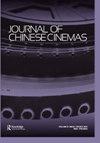Fish and elephant: Reexamining (in)visibility and claiming queer agency in China's first lesbian film
IF 0.4
3区 艺术学
0 FILM, RADIO, TELEVISION
引用次数: 0
Abstract
ABSTRACT This article examines mainland China's first lesbian film Fish and Elephant (2001) and engages a queer/feminist critique of visibility politics that locates subversive queer female agency in invisibility. Fish and Elephant is generally considered a straightforward critique of the lack of visibility queer women experience in China, illustrating how emerging lesbian discourse is entangled with China's heteronormative and patriarchal social, political, and familial structures. In light of Peggy Phelan's critical feminist reexamination of visibility politics and queer theory's interest in reorganizing the active logic of agency, I argue that Fish and Elephant explicitly makes palpable the presence of visual absence and poses a potentially more legitimizing and suggestive lesbian discourse that is not constructed in reaction to heterosexual discourse. Throughout the film, representation of the queer female is interrupted as the two main characters are not imaged at key moments in the film's narrative. The resulting absence creates a disruptive, haunting presence that activates spaces external to the hegemonic norm, de-centering the male gaze and the normative family unit, and opening up a space full of possibility that points toward as yet unimagined or unrecognizable modes of representation and of being for queer women, all women, in China and elsewhere.鱼与大象:在中国第一部女同性恋电影中重新审视(在)能见度和声称酷儿代理
摘要本文考察了中国大陆第一部女同性恋电影《鱼与象》(2001),并对可见性政治进行了酷儿/女权主义批判,将颠覆性的酷儿女性机构定位于可见性中。《鱼与象》通常被认为是对中国酷儿女性经历缺乏可见性的直接批判,说明了新兴的女同性恋话语如何与中国的非规范和父权制社会、政治和家庭结构纠缠在一起。鉴于佩吉·费兰对可见性政治的批判性女权主义重新审视,以及酷儿理论对重组能动逻辑的兴趣,我认为《鱼与象》明确地表明了视觉缺失的存在,并提出了一种潜在的更合法化和暗示性的女同性恋话语,而这种话语并不是针对异性恋话语构建的。在整部电影中,酷儿女性的形象被打断了,因为两个主要角色在电影叙事的关键时刻没有被塑造出来。由此产生的缺席创造了一种破坏性的、令人难忘的存在,激活了霸权规范之外的空间,使男性凝视和规范的家庭单元失去了中心,并为中国和其他地方的酷儿女性,所有女性,打开了一个充满可能性的空间,指向了迄今为止难以想象或无法识别的代表和存在模式。
本文章由计算机程序翻译,如有差异,请以英文原文为准。
求助全文
约1分钟内获得全文
求助全文

 求助内容:
求助内容: 应助结果提醒方式:
应助结果提醒方式:


